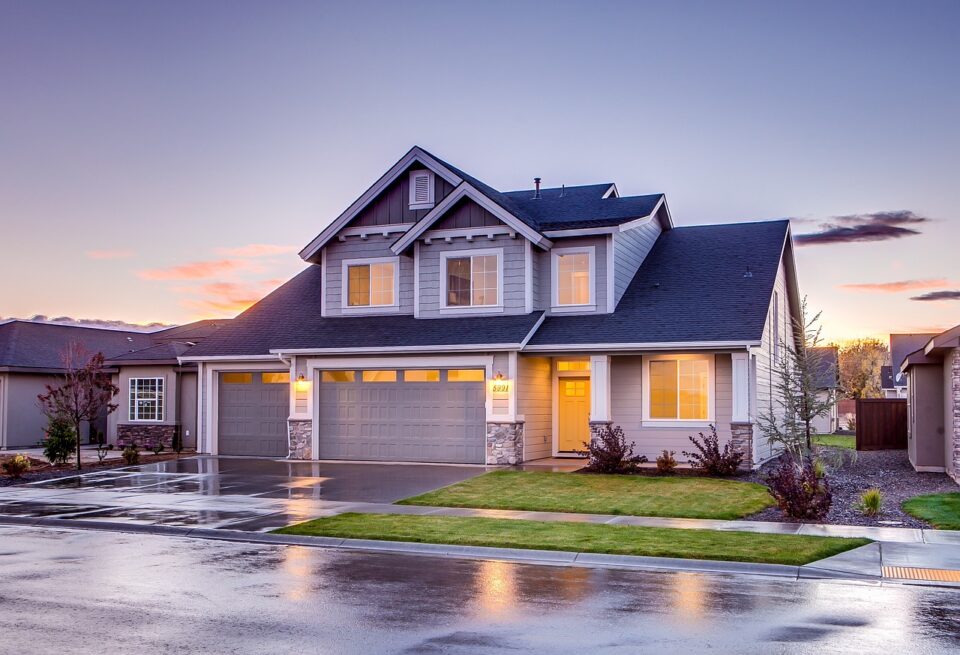Embarking on the journey of buying your first home can be both exhilarating and daunting. The financial planning aspect, in particular, requires keen attention and careful consideration. Understanding the importance of financial planning is essential for a successful home-buying journey. By making informed decisions and adequately preparing your finances, you can ensure your journey to homeownership is smooth and worry-free.
The Home-Buying Journey
Your home-buying journey begins with understanding what you can afford. It’s important to assess your income, debts, and overall financial situation before delving into the housing market. Using a general guideline like the 28/36 rule can give you a good starting point. This rule suggests that no more than 28% of your gross monthly income should go towards housing expenses, and no more than 36% towards total debt service. However, every situation is unique, and these percentages might differ based on your personal financial landscape.
Setting Up a Savings Plan
Part of the first-time home-buying process involves establishing a robust savings plan. Your savings will primarily contribute to two things: your down payment and an emergency fund.
Let’s begin by discussing home downpayment tips. Your down payment is a lump sum you pay upfront that reduces the amount of money you need to borrow. Generally, lenders recommend a down payment of 20% of the purchase price, although lower percentages may be accepted with additional mortgage insurance.
Next, we come to the equally important component: an emergency fund. This fund is your financial safety net, designed to cover unexpected home-buying costs or personal emergencies. As a general rule of thumb, your emergency savings should cover three to six months’ worth of living expenses.
Crafting a Realistic Budget
Creating a realistic budget is an essential step in your financial planning. A well-crafted budget should cover all your monthly expenses, including housing costs, groceries, transportation, entertainment, and savings. It provides a clear roadmap for managing your finances and ensures that your spending aligns with your income. By accurately estimating your expenses and income, you can identify areas where you may need to cut back or allocate more funds. Moreover, a budget enables you to prioritize your financial goals, such as saving for a down payment on a house or paying off debt.
Consistency is key here; adhering to your budget diligently can be instrumental in staying on track with your financial goals. By tracking your spending and making necessary adjustments, you can avoid unnecessary debt and establish healthy financial habits. Remember, a budget is a flexible tool that allows you to adapt to changes in your income or expenses, so make sure to review and update it regularly. Taking control of your finances through budgeting can lead to financial stability and peace of mind.
Your Mortgage Options
To finance your home purchase, you’ll likely need a mortgage. This is where our mortgage tips come into play.
Fixed-rate vs. Adjustable-rate Mortgages
There are two main types of mortgages: fixed-rate and adjustable-rate. Fixed-rate mortgages have the same interest rate for the entire repayment term, providing stability and predictability. In contrast, adjustable-rate mortgages have interest rates that change over time, potentially offering lower initial payments.
Government-insured vs. Conventional Loans
Apart from these, you also have the option of government-insured or conventional loans. Government-insured loans are backed by the federal government and are often more accessible to first-time buyers. On the other hand, conventional loans are not government-backed and typically require a higher credit score and down payment.
Knowing the Associated Costs
Understanding all the costs associated with home buying is vital to avoid unpleasant surprises. When purchasing a home, it’s important to consider both one-time closing costs and ongoing expenses. Closing costs are the fees that you pay at the closing of a real estate transaction. These costs can include loan origination fees, title insurance, appraisal fees, and more. Typically, closing costs range from 2% to 5% of the loan amount, so it’s crucial to factor them into your budget.
However, it’s not just the closing costs that you should focus on. Ongoing costs also need to be considered. These include maintenance expenses, which can arise unexpectedly and vary depending on the age and condition of the home. Homeowner Association (HOA) fees are another ongoing expense that may be applicable if you are buying a property in a managed community. These fees cover services and amenities provided by the HOA, such as landscaping, maintenance of common areas, and security.
In addition to maintenance and HOA fees, you should also budget for utilities, such as electricity, water, gas, and internet. These ongoing expenses can significantly impact your monthly budget, so it’s crucial to include them in your financial planning.
Optimizing Your Credit Score
Your credit score is another crucial factor that lenders consider when approving your mortgage application. A high credit score can not only increase your chances of getting approved for a mortgage but also help you secure a lower interest rate. This can result in significant savings over the life of your loan. Improving your credit score involves paying your bills on time, reducing your debt, and avoiding new debt. It’s also beneficial to check your credit report regularly for errors that might be affecting your score.
Considering Insurance Coverage
Finally, it’s important to consider insurance coverage when planning your home purchase. Homeowner’s insurance covers your property and possessions against damage or theft. It’s often required by lenders and can give you peace of mind knowing that you’re financially protected. Mortgage insurance may be required if your down payment is less than 20%. It protects the lender in case you default on your mortgage.
Financial planning plays a pivotal role in your home-buying journey. From assessing affordability to understanding mortgages, setting a savings plan, and considering insurance, each step is significant. As you navigate your first-time home-buying experience, remember that ongoing financial planning is essential for long-term financial health. Start today, and take a step closer to owning your dream home.

